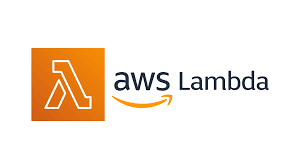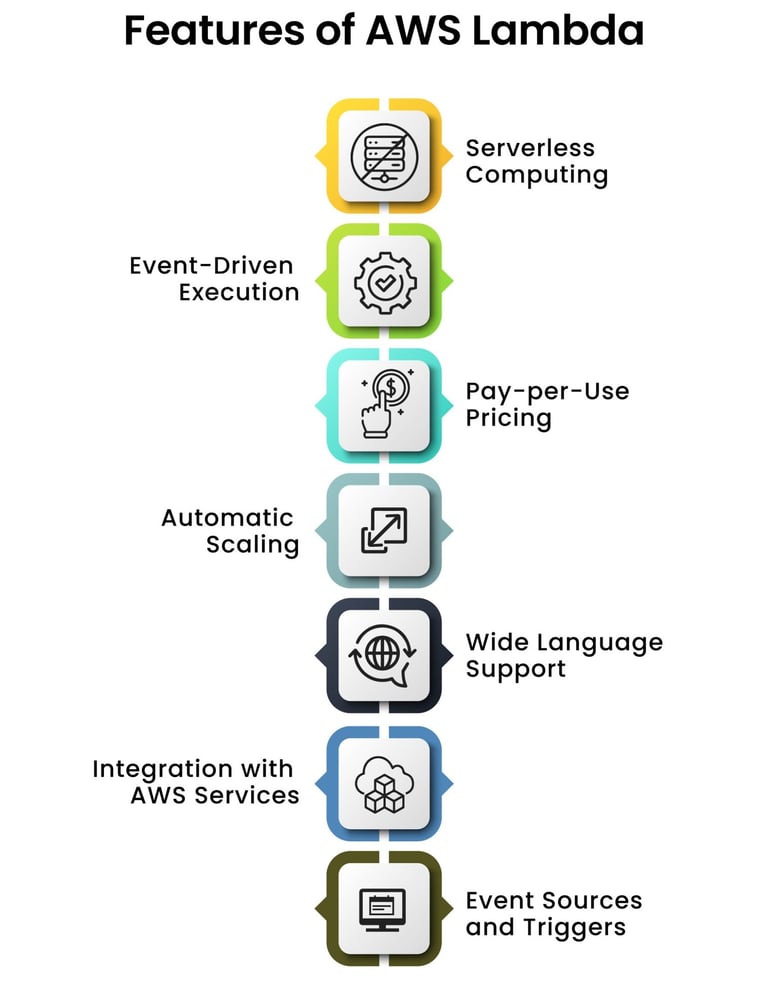Introduction to AWS Lambda
Discover AWS Lambda, Amazon's serverless computing service freeing developers from server management. Explore benefits, event-driven architecture, cost-effective pricing, AWS integration, security


Introduction to AWS Lambda
Are you eager to harness the potential of serverless computing through AWS Lambda? In this guide, we'll explore AWS Lambda in detail. We'll cover its main features, benefits, and use cases. You'll learn how it works, how to set it up, and how it integrates with other services. We'll also discuss scaling, security, cost management, and advanced features. Additionally, we'll look at best practices, real-world applications, and future trends.
What is AWS Lambda
AWS Lambda is a service from Amazon Web Services (AWS) that lets developers run code without needing to manage servers. You just upload your code, and Lambda takes care of everything else, including provisioning and scaling. This ensures your applications run smoothly and are always available.
Key Features and Benefits
Serverless: AWS Lambda is a serverless computing service. This means developers can write code without worrying about managing servers. Lambda automatically sets up and scales the infrastructure needed to run the code. This allows developers to focus only on the logic and functionality of their applications.
Event-driven architecture: Lambda functions run in response to events. These events may include data updates, user actions, or programmed events. This event-driven setup helps developers create applications that react to events in real time. It is great for things like data processing, real-time file handling, and IoT applications.
Pay-per-use pricing: With AWS Lambda, you only pay for the compute time consumed by your functions. There are no upfront costs or minimum fees with AWS Lambda. This makes it a cost-effective choice for applications with changing workloads. Lambda also automatically scales the infrastructure in response to incoming workloads. This ensures resources are used well and costs stay low.
Integration with other AWS services: Lambda works smoothly with many AWS services, like Amazon S3, Amazon DynamoDB, and Amazon API Gateway. This helps developers create serverless applications that use these services' features. It allows for efficient data processing, storage, and communication.
Multiple language support: AWS Lambda supports several programming languages, such as Node.js, Python, Java, C#, and Go. This flexibility enables developers to write functions in the language of their choice. It also helps them use their existing code and skills more easily.
Scalability and high availability: AWS Lambda automatically adjusts the infrastructure to handle incoming requests. This means your functions can manage any amount of work without you needing to worry about scaling. It replicates functions across multiple Availability Zones, providing high availability and fault tolerance.
Security: AWS Lambda works with AWS Identity and Access Management (IAM). This lets developers set detailed access controls for their functions. Only authorized users and services can invoke the functions and access the associated resources.
Monitoring and logging: AWS Lambda offers detailed monitoring and logging features. These tools help developers see how their functions are performing and behaving. It also helps in troubleshooting, performance optimization, and ensuring the seamless operation of apps.
Easy deployment and management: AWS Lambda provides a simple and intuitive interface for deploying and managing functions. Developers can easily update their code, configure triggers, and monitor function performance using the AWS Management Console, AWS CLI, or SDKs.
Real-world use cases: AWS Lambda is used in many real-world situations. These include web and mobile backends, data processing, real-time stream processing, IoT applications, chatbots, and image and video processing. Its flexibility, scalability, and low cost make it a popular choice for a variety of applications.
Future trends: As serverless computing gains traction, AWS Lambda is likely to evolve further. This includes enhancements in performance, language support, integration with additional AWS services, and the introduction of new features and capabilities.
In conclusion, AWS Lambda is a powerful serverless computing service from AWS. It allows developers to run their programs without having to manage servers. AWS Lambda has many helpful features, including serverless architecture, event-driven execution, pay-per-use pricing, integration with other AWS services, and automatic scaling. These features make it great for building efficient and cost-effective applications. With Lambda, developers can focus on writing code and creating value, while AWS manages the infrastructure and operations.
FAQ's
How do I handle errors in AWS Lambda?
AWS Lambda lets you set up error handling and retries. You can configure your functions to retry automatically if they fail. You can also utilize CloudWatch logs to track faults and troubleshoot problems.
Can AWS Lambda interact with databases?
Yes, AWS Lambda can interact with databases. You can link your Lambda functions to databases like Amazon RDS, Amazon DynamoDB, or any other database you can reach over the network. This allows you to perform database operations as part of your serverless application.
Can I use AWS Lambda with other cloud providers?
AWS Lambda is specifically designed for the AWS cloud. However, if you need to integrate with other cloud providers, you can use APIs and webhooks to interact with services outside of AWS.
What is the difference between AWS Lambda and traditional server-based computing?
With traditional server-based computing, you need to manage the servers and infrastructure yourself. But with AWS Lambda, you don’t have to worry about that. Lambda handles all server management for you. With Lambda, you focus on writing code, and AWS takes care of scaling, maintaining, and managing the infrastructure.
Can I use AWS Lambda for large-scale applications?
Yes, AWS Lambda is suitable for large-scale applications. AWS Lambda can automatically handle a lot of requests at once. This makes it a great option for apps that need to deal with large amounts of data or high traffic. It scales up as needed, so you don’t have to worry about managing it manually.


